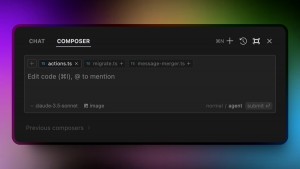Vint Cerf Talks About the Security Needs in the “Internet of Things” at RSA 2013
![]() Vint Cerf, better known as one of the fathers of internet, recently addressed at the 2013 RSA conference reinforcing the requirement of a rigid authentication system that could provide public and private keys to help consumers authenticate their presence on multiple devices, platforms and services easily.
Vint Cerf, better known as one of the fathers of internet, recently addressed at the 2013 RSA conference reinforcing the requirement of a rigid authentication system that could provide public and private keys to help consumers authenticate their presence on multiple devices, platforms and services easily.
There are so many devices and appliances available in the market, which are internet-enables, for example refrigerators, air conditioners, light bulbs, toasters, and coffee machines. Though these devices certainly make our life easy, the matter of concern is the potential danger that could arise out of them. Particularly if we talk about use of internet-equipped air-conditioning systems. Cerf noted that a hacker could get control of the nation’s air conditioning units, and cycle between shutting them down and whacking them up to full, leading to crashing of the US power grid. Further he said that such a possibility is remote, and would be well in the future, but requires thought now.
“There are all kinds of details we have to work out in order to make sure this can be trusted as much as physical signatures. We certainly don’t want the digital environment to be any less trusted than the physical world is,” Cert told the audience at his keynote address.
Citing the whopping number of connected and mobile devices worldwide, Cerf warned we should be very thoughtful that a lot of these devices are going to be a part of our environment. There might be hundreds of devices associated with us at home, in cars, at work, and elsewhere. This means that our personal data is always at some kind of risk.
“As we introduce more computing power into these devices, someday the headline may be ‘attack of the refrigerators,” Cerf joked. “There might be 100 or 200 devices associated with us; we don’t want them to be interfered with.”
“Are more random items in our households and lives begin to talk to the Internet, our total digital footprint increases,” says HackANGLE editor Kyt Dotson. “Without some sort of thoughtful compliance or personal authority tracking and securing these items they’re more of a liability than a use to it. All data produced, both internally and externally, personally and socially has a value to someone. That value means that bad guys will want to get their hands on it, perhaps just to identify if we’re at home or not, to suss out our vacation or shopping behavior (to rob our homes) or even just as benign as to sell something to us.
“The Internet of Things is very inciting because it gives people a much greater ability to interact with their personal objects and space; but without a thoughtful regime or paradigm for centralizing the authority for controlling where the data is, where it goes, and how it’s expelled it could be an even more complex problem than releasing personal information on social networking–since if my A/C is talking about my cooling habits to people I’m unaware of means that it’s talking about my house invisibly.”
A message from John Furrier, co-founder of SiliconANGLE:
Your vote of support is important to us and it helps us keep the content FREE.
One click below supports our mission to provide free, deep, and relevant content.
Join our community on YouTube
Join the community that includes more than 15,000 #CubeAlumni experts, including Amazon.com CEO Andy Jassy, Dell Technologies founder and CEO Michael Dell, Intel CEO Pat Gelsinger, and many more luminaries and experts.
THANK YOU













